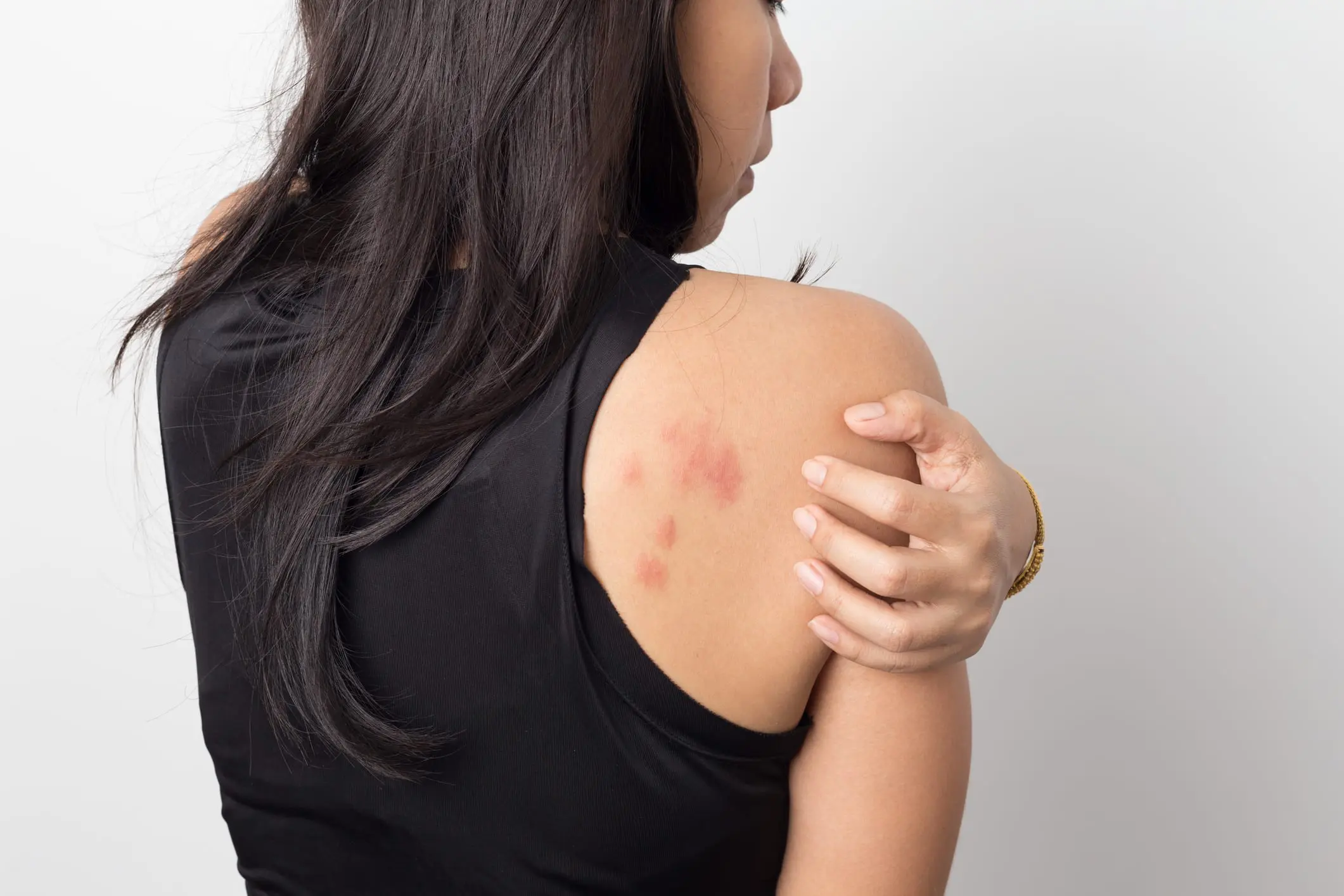Rash Treatment
Rashes can be a common skin issue, leading to changes in skin color or texture due to inflammation. Various factors can trigger rashes, such as heat, drug reactions, plants, and more. It’s essential to address skin irritations promptly, particularly when they result from heat, poison ivy, diaper use, or allergies.
We prioritize urgent situations related to rashes, ensuring you don’t have to wait in line like in other urgent care centers or emergency rooms. As a walk-in clinic, appointments aren’t necessary. For immediate rash treatment, we recommend using our virtual check-in system to reserve a spot. Find a location near you here.
Common Rash Types
Seborrheic Dermatitis
- This is the most frequent rash among adults, often accompanied by itching. It can appear on the scalp, cheeks, forehead, and ears.
Atopic Dermatitis (Eczema)
- Eczema is well-known in both children and adults, presenting as a red, itchy rash that can occur anywhere on the body.
Contact Dermatitis
- This rash results from contact with specific chemicals, leading to an allergic reaction. Examples include poison ivy, poison sumac, or poison oak, often causing intense itching and oozing.
Diaper Rash
- Typically seen in infants, diaper rash can affect adults too. It arises when urine and/or feces remain in contact with the skin for extended periods.
Drug-Related Rash
- Antibiotics and various prescribed or over-the-counter medications can sometimes lead to rashes that resemble those from common viral infections.
Hives
- Hives are characterized by red, itchy bumps that typically resolve within 24 hours.
Heat Rash
- Heat rash occurs when sweat ducts become clogged during hot or humid weather, resulting in small clusters resembling pimples or blisters. Relief often involves moving to a cooler environment and applying hydrocortisone cream.
If your rash persists despite home care, consider visiting one of our locations for professional evaluation and treatment.

Frequently Asked Questions
What is a rash, and how do I know if I have one?
A rash is a change in the skin’s color, texture, or appearance, often accompanied by itching or discomfort. You may notice redness, bumps, blisters, or other skin abnormalities. If you’re experiencing unusual skin changes, you may have a rash.
What are the common causes of rashes?
Rashes can result from various factors, including heat, allergies, chemical exposure (like poison ivy), infections, medications, and underlying medical conditions. Identifying the cause can help determine the appropriate treatment.
Are all rashes a cause for concern?
Not all rashes are serious. Some may be mild and resolve on their own, while others may require medical attention. It’s essential to monitor the rash’s progression and seek help if it worsens or if you experience other symptoms like fever or difficulty breathing.
When should I seek medical care for a rash?
You should consider seeking medical care if the rash is severe, covers a large area of your body, is painful, oozes pus, or if you have a fever or difficulty breathing. Additionally, if the rash persists despite home remedies, medical evaluation is recommended.
Can rashes be contagious?
Some rashes, like those caused by infections such as fungal or viral rashes, can be contagious. It’s essential to take precautions to prevent the spread of contagious rashes, such as avoiding close contact with others and practicing good hygiene.
How can I treat a mild rash at home?
Mild rashes can often be managed at home by keeping the affected area clean and dry, using over-the-counter creams or ointments (like hydrocortisone for itching), and taking antihistamines if recommended by a healthcare provider.
Can I prevent rashes?
Preventing rashes depends on their cause. To reduce the risk of certain rashes, practice good hygiene, avoid allergens or irritants, wear protective clothing (e.g., for sun protection), and promptly treat skin injuries to prevent infections.
Are there different types of rashes, and how can I identify them?
Yes, there are various types of rashes, each with unique characteristics. Common types include:
- Seborrheic Dermatitis
- Atopic Dermatitis (eczema)
- Contact Dermatitis
- Diaper Rash
- Drug-Related Rash
- Hives
- Heat Rash.
Identifying the type of rash can help in proper treatment.
What should I expect during a medical evaluation for a rash?
During a medical evaluation, a healthcare provider will examine the rash, inquire about your symptoms and medical history, and may perform tests if needed to determine the cause. Treatment options will be discussed based on the diagnosis.
Where can I get medical care for a rash?
Midwest Express Clinic offers immediate medical care for individuals with rashes. Our walk-in clinics provide convenient access to healthcare professionals who can diagnose and treat various skin conditions.
Can I treat a rash at home, and when should I see a healthcare provider?
Many rashes can be treated at home with over-the-counter remedies like hydrocortisone cream, staying hydrated, and avoiding irritants. However, if the rash persists, intensifies, or causes severe discomfort, consult a healthcare provider. Midwest Express Clinic offers immediate care for rashes without the need for appointments.
Rash treatment is available at these locations:
Illinois
Aurora
Blue Island
Bolingbrook
Bourbonnais
Burbank
Calumet Park
Carol Stream
Chicago Ridge
Cicero
Elmhurst on Butterfield
Elmhurst on York Street
Evergreen Park
Homewood (coming soon)
Lombard
Matteson
Melrose Park
Norridge
Northbrook
Oak Forest (coming soon)
Richton Park
River Forest
Skokie
Tinley Park on Harlem
Tinley Park on LaGrange
Westmont
Wheaton
Willowbrook

